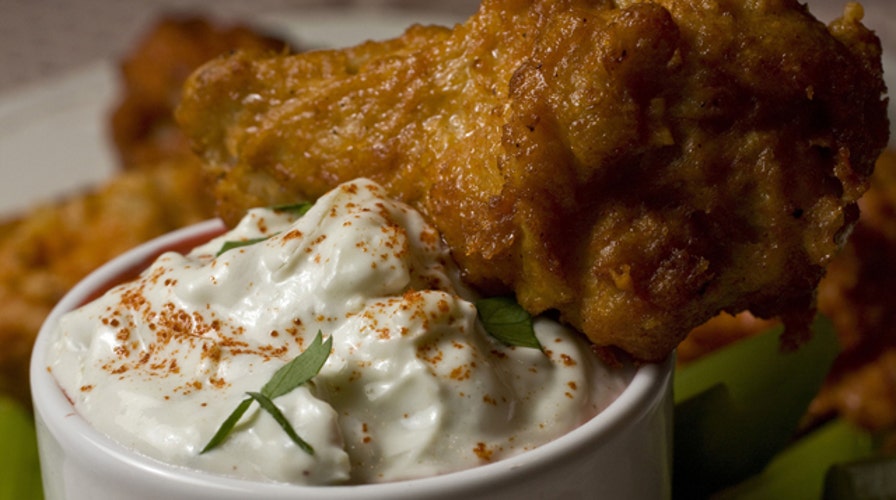First it was bacon, now it's chicken wings. With less than two weeks to go before the big game, football fans may find it a bit harder to find their favorite Super Bowl snack.
The National Chicken Council released a report that said the demand for wings this year is at “an all-time high” due to decreased wing production caused by the high cost of corn and feed prices. Wings are currently the highest priced portion of a chicken and cost $2.11 a pound in the Northeast, up 12 percent from last year.
The organization has lowered the estimated number of wings to be consumed during Super Bowl weekend to 1.23 billion wing segments, 12.3 million less than last year. That's about 1 percent, says the council.
“Chicken companies produced about 1 percent fewer birds last year, due in large part to record high corn and feed prices,” Bill Roenigk, chief economist and market analyst at the Washington, D.C.-based National Chicken Council said in a release. “Corn makes up more than two-thirds of chicken feed and corn prices hit an all-time high in 2012, due to two reasons: last summer’s drought and pressure from a federal government requirement that mandates 40 percent of our corn crop be turned into fuel in the form of ethanol. Simply put, less corn equals higher feed costs, which means fewer birds produced.”
Americans are serious about their chicken wings. Second only to Thanksgiving, Super Bowl weekend is the biggest eating day of the year, and chicken wings are the most popular dish. To give you a picture of just how many wings fan will chow down on, The National Chicken Council says if those 1.23 billion chicken wing segments were laid end to end, they would stretch between the San Francisco 49ers Candlestick Park and the Baltimore Ravens M&T Bank Stadium 27 times.
Last year, gastronomes were sent into a tizzy at the news of a possible shortage of another American comfort food stable: bacon. Due to rising food costs and drought, prices for bacon and other pork products are expected to rise as much as 10 percent this year, but chefs and home cooks breathed a collective sigh of relief as U.S. agricultural economists dismissed reports of a global bacon shortage.
As far as the wings are concerned Roenigk said you may have to pay more, but there will be wings aplenty --no matter who you're rooting for.
“The good news for consumers is that restaurants plan well in advance to ensure they have plenty of wings for the big game,” he said.
So don't forget the TUMS.

